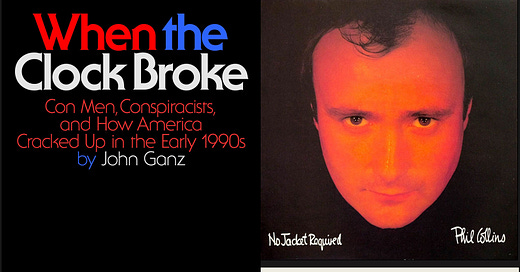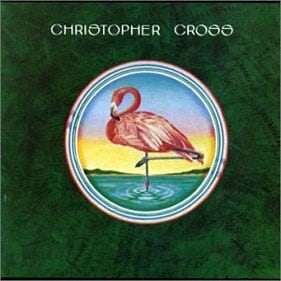The week after the US election, I was talking to my therapist about fathers. Not my father, but fathers in general, and about the avuncular manager at the grocery store whom I’d encountered in the bread aisle with an expression of concern on his face because there had been a widespread recall. Another widespread recall, after the one not long before it that had me tossing my fancy $5 ancient grains loaf into the garbage because it might be contaminated with metal fragments, just one more thing that made it feel like the world was going to shit, like nobody normal was in charge.
“Do you know what’s going on with this?” I asked the grocery store manager, who looked up from his clipboard shaking his head, but not despairingly. It’s just a lot, managing a grocery store, even at the best of times, and these are not that. He explained that my preferred loaf was not affected by this recall, and I said I wanted to be sure. Mainly I just wanted to keep talking to him, because of the authority of his clipboard, and how he reminded me of the actor Richard Kind.
“Basically,” I told my therapist, the revelation dawning. “I wanted the grocery store manager to be my dad.”
And with that, I finally realized why, in the wake of an election that was upending the world order, I was yammering on about ancient grains and grocery stores, and I also understood the one thing I might have in common with voters who were celebrating the election result instead of mourning it.
It was all about dads, about clipboards and pressed shirts, about order and authority, and the the promise of a person (a man person) who could tell you, and even mean it, that everything was going to be all right.
Such a promise was what I’d been seeking in late 2021 and early 2022, a period during which my mental health—in addition to many other things on a global scale—had crumbled, and I was listening to a lot of yacht rock. Steve Winwood pleading for a higher love, Don Henley’s attempts to get down to the heart of the matter, Eric Carmen asking for the radio to be turned up, and England Dan and John Ford Coley who were not talking about moving in, nope, they just really wanted to see you tonight.
And this wasn’t the first time these sweet sounds had been used to drown out the world, distraction being precisely what yacht rock was born for, according to a 2019 BBC documentary on the subject: “retaining the lush, laid-back sound [of Laurel Canyon] while dialing down the navel-gazing lyrics to create the perfect soundtrack for listeners trying to ignore Watergate and Vietnam.”1
It was all about dads, about clipboards and pressed shirts, about order and authority, and the the promise of a person (a man person) who could tell you, and even mean it, that everything was going to be all right.
For me, however, the comfort of this music was less abstract, more personal. Born smack dab in the middle of the yacht rock era2, I’d emerged into consciousness with these tunes on the radio, and so listening to them takes me back to my own simpler time, to perhaps the simplest time. These are the songs that remind me of feeling as safe as I have ever felt, at least since the womb, buckled into the backseat of a car driving down a highway late at night, my parents quiet in the front.
The FM radio is playing low, with faint illuminations on the dashboard the only light I see.3 I am pretending to be asleep, but all the while trying to decipher the world around me in the darkness: the soft hum of my parents’ conversation, the click of a turn signal suggesting we’re getting closer to home, and the strange and mesmerizing words of whatever song we’re listening to. I turn these lyrics over and over in my mind to understand just what they mean, what kind of story about the world they are telling: I can feel it coming in the air tonight. I’ve been waiting for this moment for all my life.
Keep reading with a 7-day free trial
Subscribe to Pickle Me This to keep reading this post and get 7 days of free access to the full post archives.





